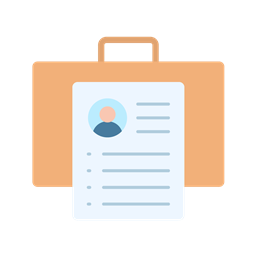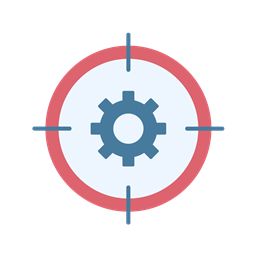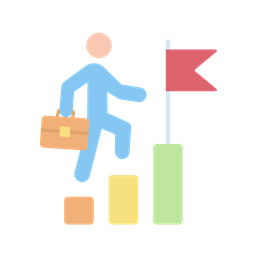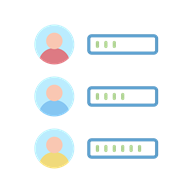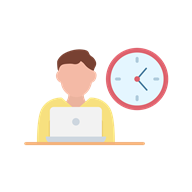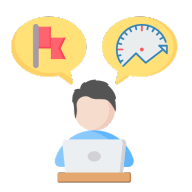If you, like us, have been working in HR for a while, you’ll know that some processes can get a bit…tedious. From sorting through candidate profiles to going over a plethora of employee data to optimize company workings, there are quite a few HR tasks that can take up the good portion of your workdays if you let them. So how do you work around these repetitive tasks? With the help of artificial intelligence, of course.
The use of AI in HR is by no means a new topic, but one that expands every day as our understanding of technology evolves. More and more tasks become digitized every day, helping HR processes run more smoothly and efficiently. Incorporating AI into your HR practice can help your base decisions on analytical figures rather than qualitative insights, increasing productivity in your company.
But how exactly could AI fit within your HR department to enhance your operations? Let’s look at some different ways, shall we:
Automate time-consuming repetitive tasks
One of the best ways in which AI can be used to augment the HR experience is by automating low value repetitive tasks. Think employee questionnaires, paperwork processing, or resume scanning. All these tasks that would take you days on end to complete, AI can do in mere seconds. In doing so, AI can not only lead to more definitive results but also save you time to focus on high-value tasks requiring higher human input.
Make better hires
Speaking of resume scanning, AI can also help you find better candidates from a wide talent pool. We have spoken about automating the candidate screening and interviewing processes before, but no harm in refreshing our memories a bit: there are a variety of AI programs that can be used to help you screen resumes or LinkedIn profiles when looking to hire new talent. Automating the screening process means reducing the candidate pool into the most qualified potential employees for you to choose from. Automating interview processes, on the other hand, can be helpful in enhancing the screening process by giving you a ‘human touch’ without having to spend ample time on personal interviews. By asking candidates to record themselves responding to automated interview questions, you will then be able to more easily select which talent to conduct in-person interviews with. Reducing the amount of time spent on the initial talent screening processes means you have more time to spend on perfecting the final stages and selecting the best possible candidate.
Using AI in the hiring processes also has the added benefit of eliminating human bias in deciding on who is best qualified for the position, deriving a selective talent pool through data-driven processes only. Say hello to a more inclusive workplace.
Personalize and optimize your onboarding
Incorporating AI into your onboarding process can help you implement a smoother onboarding experience for your new hires. By easily being personalized to each new hire, AI can help provide each employee with the necessary training and essential information to help onset their journey in the company. The key here is to combine the artificial and the human, making your employees feel ready for their new position in all ways possible.
Employee training softwares are a big part of the AI that can be used during onboarding. These personalized softwares can help each new hire grow to their full potential by conducting courses to fit different needs, as well as identifying any areas that need growth. This way, businesses can intervene when necessary to close proficiency gaps.
Detect employee turnover
Detecting and analyzing employee turnover is a big mission that any HR department must face daily. Incorporating AI into this practice can help you better track voluntary and involuntary employee terminations, as well as reasons behind these occurrences. Artificial intelligence is more adept than the human eye at recognizing long-term patterns, which may help build a better understanding of what is and isn’t working in the company.
Retain more employees
By being able to detect employee turnover and analyze the reasons behind it, AI can also help you increase employee retention. After analysis of employee turnover reasons, AI systems can then be used to track which current employees might be looking to terminate their positions. By automatically recognizing potential employee turnovers and alerting HR professionals, AI can then help prevent employee turnover from happening.
Make data-based decisions
Corporate HR decisions can be facilitated to no end with the use of different AI softwares. AI can be utilized in anything from optimizing work hours to detecting employee emotions. By gathering its data straight from the source, the employees, AI can then transform qualitative data into quantitative and use it to make informed decisions. This helps minimize human error without eliminating the need for human input.
Boost employee performance
With its unique ability to gather and analyze data from a wide array of sources, AI can then weed through all of its data to offer solutions with the highest possibility of satisfaction. AI data gathered on employee happiness can help implement all kinds of changes in the office, from an additional toilet stall to more flexible work hours. And using this data to create lasting change in the workplace can then boost employee satisfaction and, by proxy, employee productivity.
These are some of the uses of AI in HR, but of course it doesn’t end here. With technological developments happening every day, we are certain that emerging automated processes will continue to help create a more seamless HR experience.

